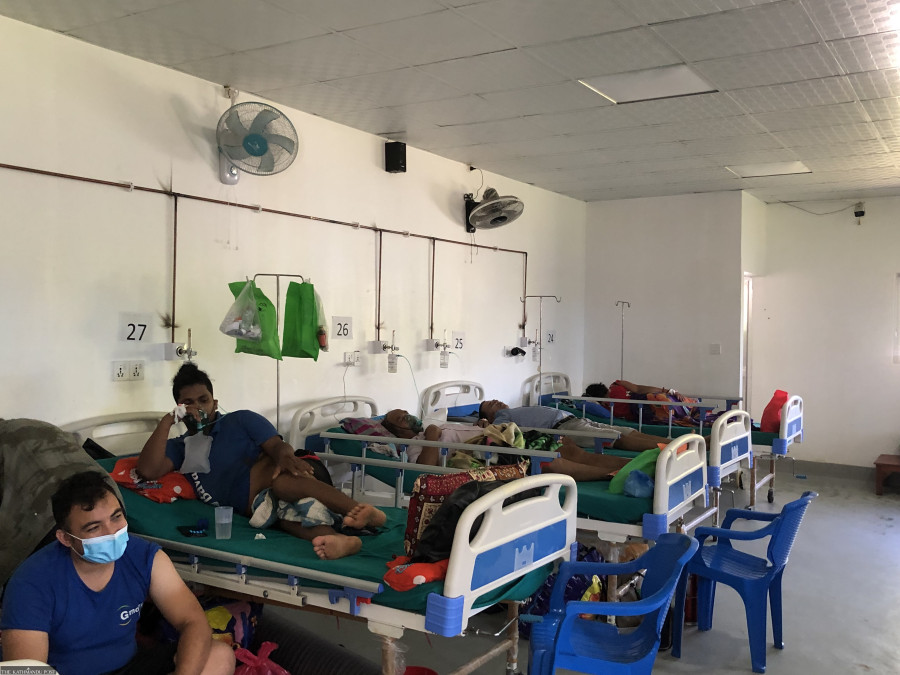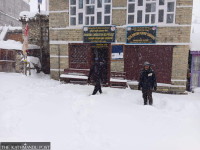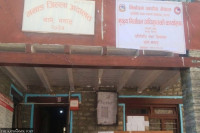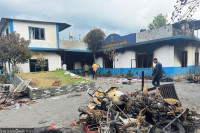Gandaki Province
Covid-19 cases in Gandaki has tripled compared to same time last year
Despite the increasing number of cases of late, the province has not done much to prepare for a health emergency.
Deepak Pariyar
During the first wave of the Covid-19 pandemic, 26,633 cases were reported in Gandaki Province. This year, since the start of the second wave in mid-April 2021, the number of coronavirus cases has reached 76,342, according to the data of the Ministry of Social Development in Gandaki Province.
The number has tripled this year as compared to the corresponding period last year.
Last year, 207 individuals died of Covid-19 during the first wave of the pandemic in Gandaki Province. This year, 995 people in the province have lost their lives to the virus.
Between mid-July and mid-August, 15,823 new cases were reported in the province while 188 died due to Covid-19.
Dr Ram Bahadur KC, chief at the hospital development and medicine service division under the ministry, says the increase in the number of coronavirus cases can be attributed to the fact that more people are coming forward to test for the virus this year compared to last year.
“Until last year, people did not want to get tested because of fear of ostracisation from society. But this year, people have started visiting health institutions for Covid-19-related symptoms,” he said, adding that the main reason for the increase in testing is the relaxation of prohibitory orders across the province.
“People have become complacent. And there is vaccine confidence too. Vaccinated people are moving around freely thinking they will not contract the virus,” he said.
According to the data of the ministry, 322,327 individuals have so far received complete doses of Covid-19 vaccines in Gandaki Province while 551,850 individuals have received the first dose.
The province currently has 6,168 active cases. Kaski is on top of the list with 2,115 active cases of Covid-19. The district has reported a total of 30,433 positive cases so far with 517 fatalities. Most of the infected and the deceased are from Pokhara Metropolitan City.
Despite the increasing number of cases of late, the province has not done much to prepare for an outbreak. Patients have to pay a hefty amount to afford treatment in private hospitals, as the authorities failed to increase the number of beds and other facilities in government hospitals.
Pokhara Academy of Health Science, the biggest government health institution in Gandaki Province, has permission to run 500 beds but operates only 350 beds at present. The hospital management has allocated 80 beds for Covid-19 patients. All 25 ICU beds in the Covid-19 ward are occupied now.
Dr KC said that the hospital, which falls under the federal government, did not increase the number of beds despite repeated requests from the provincial government. According to him, the provincial government provided Rs 3.5 million to the hospital a few months ago to increase the number of beds and manage oxygen.
Dr Bharat Bahadur Khatri, the director at Pokhara Academy of Health Sciences, admitted the hospital’s inability to increase the number of hospital beds as agreed earlier. “We could not find a contractor to extend the oxygen pipeline at the hospital and had to invite the tender again. So the adding of hospital beds has been delayed to expand the hospital’s facilities,” said Khatri. He said the hospital would initially add 35 beds and gradually increase the number of beds.
Similarly, all 57 beds at the Infectious Communicable Disease Hospital set up in Lekhnath are also filled with Covid-19 patients. A new building is under construction at the hospital to expand its health services.
There are a total of 83 ventilators, 214 ICU beds, 467 HDU beds and 581 isolation beds in the government, private and community hospitals of Gandaki Province. A total of 369 people are receiving treatment at these hospitals at present. Other infected people are in home isolation.
Health workers suspect that many Covid-19-infected people might still be staying in home isolation given the high hospital expense at private hospitals and a lack of well-equipped public health institutions.
“The number of hospital admissions is less in comparison to the total number of infected people in the province. Many people fear that they have to spend a huge amount of money for treatment so they prefer to stay at home,” said Dr David Shrestha of the Pokhara Academy of Health Sciences.
Dr KC admits that treatment for Covid-19 can be expensive but claims there is no shortage of beds in the province.
“We have not received complaints of bed shortage but have received several complaints about expensive treatment costs at private hospitals. We will focus on monitoring private hospitals in this regard,” he added.




 14.24°C Kathmandu
14.24°C Kathmandu.jpg)











